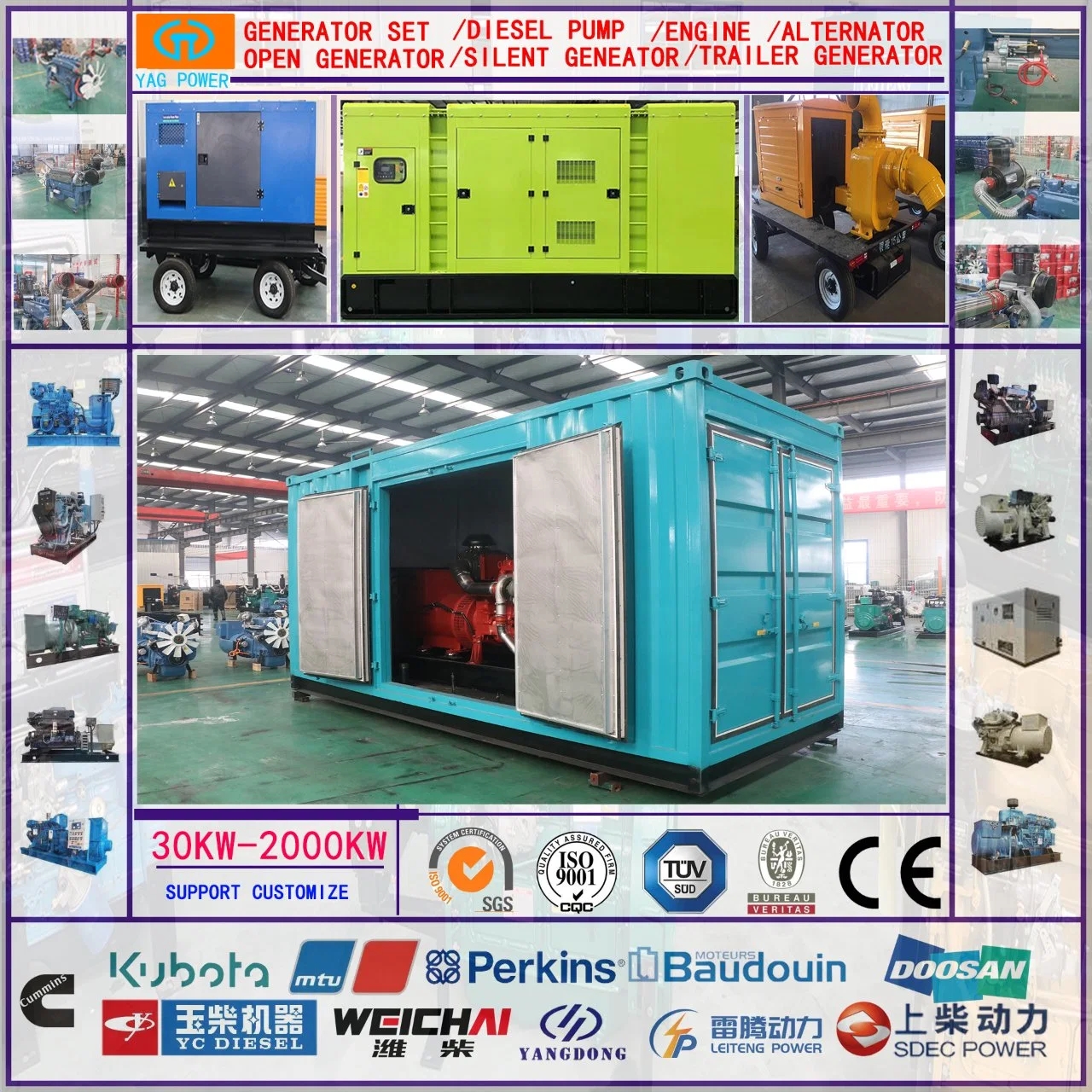Introduction
Environmental testing plays a crucial role in ensuring that products and systems can withstand the challenges of their respective environments. From extreme temperatures to humidity levels, products must be rigorously tested to ensure their durability and reliability. One essential tool in environmental testing is the diesel generator, which provides a reliable source of power to simulate various environmental conditions. In this article, we will explore the role of diesel generators in environmental testing, their benefits, challenges, and their impact on sustainability.
Role of Diesel Generators in Environmental Testing
Diesel generators are commonly used in environmental testing facilities to provide a consistent and reliable source of power for testing equipment. These generators are capable of producing a large amount of electrical power, making them ideal for powering equipment that requires high energy consumption. In environmental testing, various instruments such as climate chambers, vibration tables, and altitude chambers require a stable power supply to simulate different environmental conditions accurately.
One of the key advantages of diesel generators is their ability to operate continuously for extended periods without interruption. This reliability is crucial in environmental testing, where even a brief power outage can compromise the accuracy and validity of test results. Diesel generators can also be easily integrated into existing testing facilities, providing a seamless and dependable power source for a wide range of testing applications.
Benefits of Diesel Generators in Environmental Testing
1. Reliability: Diesel generators are known for their reliability and durability, making them well-suited for demanding environmental testing applications. Their robust construction and simple design ensure that they can operate efficiently even in harsh testing conditions.
2. Power Output: Diesel generators are capable of producing high power output, making them suitable for powering heavy-duty equipment used in environmental testing. This high power output allows for the accurate simulation of various environmental conditions, ensuring that products undergo thorough testing.
3. Fuel Efficiency: Diesel generators are more fuel-efficient compared to other types of generators, resulting in lower operating costs over the long term. This efficiency is particularly important in environmental testing facilities that may require continuous power supply for extended periods.

4. Low Maintenance Requirements: Diesel generators are relatively low maintenance compared to other power sources, making them a cost-effective option for environmental testing facilities. Regular maintenance checks and servicing can help prolong the lifespan of diesel generators, ensuring their continued reliability.
Challenges of Diesel Generators in Environmental Testing
While diesel generators offer numerous benefits for environmental testing, they also present some challenges that need to be addressed:
1. Environmental Impact: Diesel generators emit pollutants such as nitrogen oxides (NOx), particulate matter, and carbon monoxide during operation, contributing to air pollution and environmental degradation. Mitigating these emissions through proper maintenance, emission control technologies, and operational best practices is essential to minimize the environmental impact of diesel generators.
2. Noise Pollution: Diesel generators can produce high levels of noise during operation, which can be a concern in testing facilities located in residential or noise-sensitive areas. Implementing soundproofing measures and scheduling generator operations during off-peak hours can help reduce noise pollution.
3. Storage and Handling of Fuel: Diesel generators require a constant supply of diesel fuel, which must be stored and handled safely to prevent spills and contamination. Proper fuel management practices, including regular fuel monitoring and storage tank maintenance, are essential to ensure the safe operation of diesel generators.
4. Regulatory Compliance: Environmental testing facilities using diesel generators must comply with local regulations and emission standards to minimize their environmental impact. Regular emissions testing, compliance reporting, and adherence to emission control requirements are essential for maintaining regulatory compliance.
Impact of Diesel Generators on Sustainability
Despite the challenges associated with diesel generators, advancements in technology and best practices have made it possible to minimize their environmental impact and enhance their sustainability. Some of the ways in which diesel generators can contribute to sustainability in environmental testing include:
1. Emission Control Technologies: The use of advanced emission control technologies such as selective catalytic reduction (SCR) systems and diesel particulate filters (DPF) can significantly reduce the emissions of nitrogen oxides and particulate matter from diesel generators. These technologies help mitigate the environmental impact of diesel generators and improve air quality in testing facilities.
2. Alternative Fuels: The use of biodiesel or renewable diesel as alternative fuels for diesel generators can reduce their carbon footprint and reliance on fossil fuels. These alternative fuels are derived from renewable sources such as vegetable oils, animal fats, or waste oils, making them a more sustainable option for powering diesel generators in environmental testing.
3. Energy Efficiency: Implementing energy-efficient practices such as load management, idle reduction, and optimized generator sizing can improve the overall efficiency of diesel generators and reduce their fuel consumption. By maximizing energy efficiency, environmental testing facilities can minimize their environmental footprint and operating costs.
4. Renewable Energy Integration: Combining diesel generators with renewable energy sources such as solar panels or wind turbines can further enhance the sustainability of environmental testing facilities. By leveraging the complementary nature of diesel generators and renewable energy, facilities can reduce their reliance on fossil fuels and lower their carbon emissions.
Diesel generator for remote power supply play a vital role in environmental testing by providing a reliable source of power for simulating various environmental conditions. While diesel generators offer numerous benefits for testing facilities, they also present challenges related to environmental impact, noise pollution, fuel management, and regulatory compliance. By implementing best practices, advanced technologies, and sustainable solutions, environmental testing facilities can mitigate the environmental impact of diesel generators and enhance their overall sustainability. As technology continues to evolve, diesel generators are likely to remain a critical component of environmental testing, powering sustainable solutions for testing products and systems in diverse environments.
